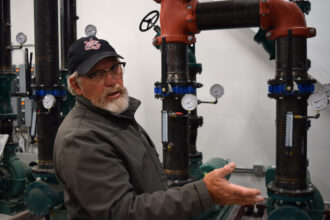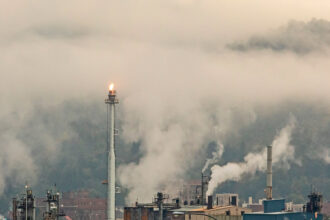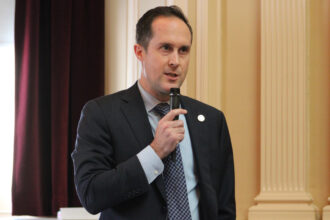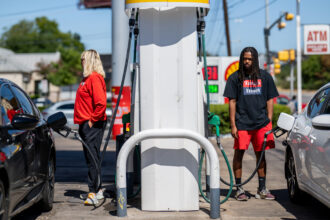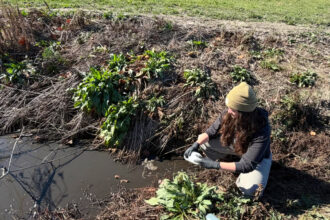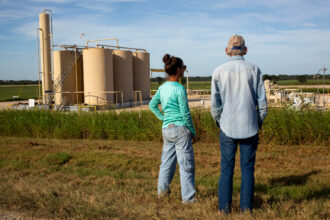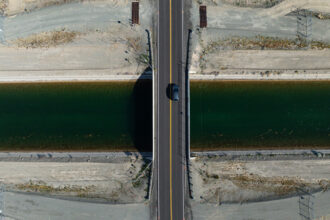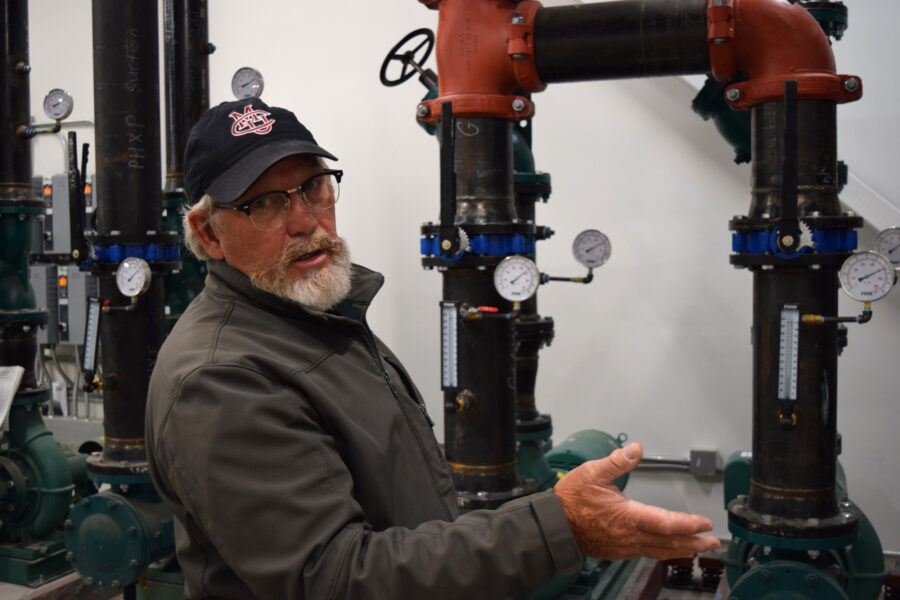Australian Greens Seek ‘Fast, Furious’ Climate Steps (Bloomberg)
The Australian Greens plan "fast and furious" action to establish a climate change committee and impose a price on carbon emissions under a government led by the Labor Party’s Julia Gillard.
Low-Carbon Market to Treble by 2020: HSBC (Reuters)
The world’s low-carbon energy market is likely to treble by 2020, HSBC analysts forecast on Monday, saying that rising concerns about resource scarcity would support broad consensus on the threat of climate change.
Insurers Demand Key Role in Climate Adaptation (Business Green)
Over 100 of the world’s leading insurance companies joined forces yesterday to urge world leaders to draw on the industry’s expertise to shape climate adaptation policies for developing countries.
Water Could Be Issue with Western Kan. Coal Plant (AP)
A western Kansas utility’s push to build a new coal plant has already embroiled it in a lengthy public dispute about potential air pollution, and now the project could touch off a battle over water.
German Nuclear Power Extension Threatens Offshore Wind Funding (Bloomberg)
The German government’s plan to extend the phase-out of nuclear power risks hampering investment in offshore wind turbines, a technology that may provide much of the country’s renewable energy by the middle of this century.
Merkel Confident on Nuclear Plan Despite Opposition (Reuters)
German Chancellor Angela Merkel said she was confident a law extending the lives of nuclear power reactors could be passed without backing from the upper house of parliament, setting up a clash with opposition parties.
Turkey Joins Europe, Electrically Speaking (New York Times)
Turkey may be frustrated in its bid to become part of the EU, but by the end of September, it will join Europe’s electric grid.
UK Launches Investor Forum to Spur Green Finance (Reuters)
The British government launched an initiative on Tuesday to unlock new investment in low-carbon technologies and make London a global hub for green finance.
Climate Change Not Linked to African Wars (Nature)
New research finds no correlation between climate change indicators such as temperature and rainfall variability and the frequency of civil wars over the past 50 years in sub-Saharan Africa. The analysis challenges a study published last year.
Erratic Global Weather Threatens Food Security (AFP)
The drought in Russia and floods in Pakistan are part of a global trend of unpredictable weather patterns and rainfall that threaten food security, experts gathered in Stockholm said.
US-Dutch Research: Greenland and Western Antarctica Icecaps Melting at Half the Speed (Green Car Congress)
The Greenland and West Antarctic ice caps are melting at half the speed previously predicted, according to research by a joint US-Netherlands team published in Nature Geoscience.
New Detailed Map Shows Carbon in Peru’s Amazon (Reuters)
A new, highly detailed map of part of Peru’s Amazon shows how much climate-warming carbon is stored there, and where cutting down vegetation has sent this greenhouse gas into the atmosphere, scientists said on Monday.
Tech Fixes to Wind Turbine-Radar Conflict Face Hurdles (CNET News)
Emerging technology can ease the problem of wind farms causing interference with air-traffic control systems. But deployment of that technology in the U.S. has been slowed by questions over authority and cost.
Norway, Russia to Sign Final Arctic Border Deal (Reuters)
Norway and Russia have agreed to a final delineation of their Arctic maritime border and will sign a treaty next week, paving the way to open the potentially oil- and gas-rich region for offshore exploration.
About This Story
Perhaps you noticed: This story, like all the news we publish, is free to read. That’s because Inside Climate News is a 501c3 nonprofit organization. We do not charge a subscription fee, lock our news behind a paywall, or clutter our website with ads. We make our news on climate and the environment freely available to you and anyone who wants it.
That’s not all. We also share our news for free with scores of other media organizations around the country. Many of them can’t afford to do environmental journalism of their own. We’ve built bureaus from coast to coast to report local stories, collaborate with local newsrooms and co-publish articles so that this vital work is shared as widely as possible.
Two of us launched ICN in 2007. Six years later we earned a Pulitzer Prize for National Reporting, and now we run the oldest and largest dedicated climate newsroom in the nation. We tell the story in all its complexity. We hold polluters accountable. We expose environmental injustice. We debunk misinformation. We scrutinize solutions and inspire action.
Donations from readers like you fund every aspect of what we do. If you don’t already, will you support our ongoing work, our reporting on the biggest crisis facing our planet, and help us reach even more readers in more places?
Please take a moment to make a tax-deductible donation. Every one of them makes a difference.
Thank you,




